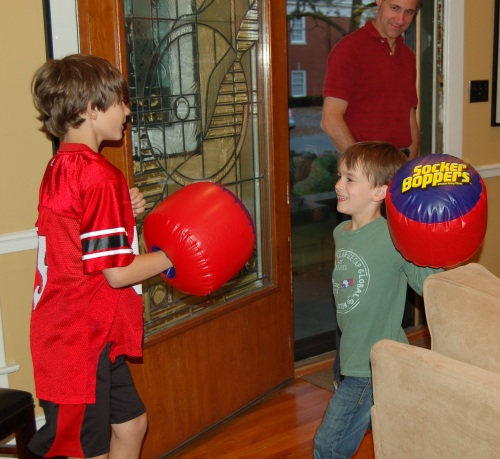What? You thought you’d get through the entire 2012 election cycle without my blogging about politics? Come now, you know me better than that.
But barring one teeny-tiny paragraph, I’m going to spare you talk of policy and discuss something else, something that is—or should be—politically neutral. My teeny-tiny paragraph first:
Unlike many on the left in America, I never grew disenchanted with this president. I have not always agreed with his policies (The Afghan surge, for example) or his strategy (I think he was weak until very late in the game about defending his accomplishments and policy positions), but I don’t expect to. We’re all human, and no two of us should do or think exactly alike. What I have thought from day one is that this is a good, smart man with a fine mind and amazing temperament. I think Obama understands what it is to struggle. I think he truly cares about the welfare of the people. I think he’s run a largely clean and competent administration. I was proud to vote for this man four years ago; I was equally proud to vote for him again yesterday.
And that’s the end of that. Now lets move on to the sexy part: statistics and polling! I am not, nor have I ever been, a numbers person. But sometimes I think I really, really should be. Since June, I’ve been carefully following Nate Silver of fivethirtyeight.com. I discovered him five years ago, when he was a baseball statistician recently turned to politics. Two years ago his blog was snapped up by the New York Times, but I still managed to keep an eye on him. Then just a few weeks ago I was directed to Sam Wang at the Princeton Election Consortium, a group of science and stat geeks that apply the mathematical rigor of their various fields to polling and politics. How mathematical? Here’s Wang last night:
“I actually don’t like Election Night that much – too much noise, not enough signal…and not nearly enough MATLAB.”
His predictions came in two flavors: Random Drift & Bayesian. If you, like me, are tired of gas-bag pundits on both sides of the aisle, these guys provide a welcome, analytical relief.
And so, in the last two weeks, I found myself fending off hysterical poll analysis on the left (“Gallup still shows Romney up a point nationwide! We’re going to lose!”) and shaking my head at delusional poll analysis on the right (George Will put Minnesota in the Romney column. Minnesota!). All the while, nearly alone among my family, friends, and social media circle, I would check out Nate Silver’s model, which weights polls, and Sam Wang’s model, which relies on meta-analysis of state polls, and be calmed by their findings of a slim but consistent Obama lead. While I was at it, I also learned why state polls are more reliable than national ones, which way various national polls lean and why, and a fair bit about sample sizes and how “likely voters” are determined.
While I was happily geeking out, some pundits and hacks turned on Nate Silver in ways that are ugly (“he’s effeminate!”) and uninformed (“He missed the 2010 UK election badly.” He did, but that analysis was admittedly experimental.) Sam Wang was too geeky to be much noticed I guess. Suddenly, everyone was talking about polls underestimating white evangelical turn-out, polls over-estimating minority and youth turn-out, the so-called enthusiasm gap, and the crutch of all horse-race pundits, the all-mighty gut.
George Wills’ gut predicted a 321-217 Electoral College landslide for Romney. Karl Rove’s gut? 279 to 259 for Obama. Michael Barone of the Washington Examiner called it 315 to 223 for Romney. Charles Krauthammer said it would be close but that Romney would prevail. Much of the nervous left predicted an Obama electoral win, but only if you clicked a button that made them put battle-ground states in one column or another. They were hedging like mad, and calling nothing. In the face of Sam Wang’s saying there was over a 98% chance of an Obama re-election (up to 99.2% on election day), pundits on the left still fretted and disbelieved. On election eve, every major newspaper and news blog I saw said the race was a toss-up based on national polls without delving into state polls of key battle-ground states that showed otherwise.
Meanwhile, Nate Silver put the race at 314.6 to 223.4 for Obama. And Sam Wang had it at 312 to 226. Without calling Florida, the race stands at 303 to 206. With Florida in the Obama column, it’s 332 to 206. Basically, Silver and Wang called Florida a dead-heat and did a metaphorical coin toss. It is in fact super tight in Florida, but it looks like Obama has won it. My own guess, fyi, had Obama winning with 303. I missed Florida too, but bettered many a professional pundit.
I wonder if maybe the next time the gas-bag pundits will listen more to the geeks. Will we hear less about their all-knowing guts? Will the stats geeks be less vilified? I’m not counting on it, but it sure would be nice. And just. Because just like in 2008, this time it’s the geeks who got it right.
Further Reading:
Nate Silver can be found at: http://fivethirtyeight.blogs.nytimes.com/
Sam Wang is located at: http://election.princeton.edu/
A glorious take-down of Nate Silver detractors may be read at: http://deadspin.com/5956562/nate-silvers-braying-idiot-detractors-show-that-being-ignorant-about-politics-is-like-being-ignorant-about-sports
For an illustration of what happens when the analysis is removed from poll analysis, take a gander at Unskewed Polls at: http://unskewedpolls.com/
